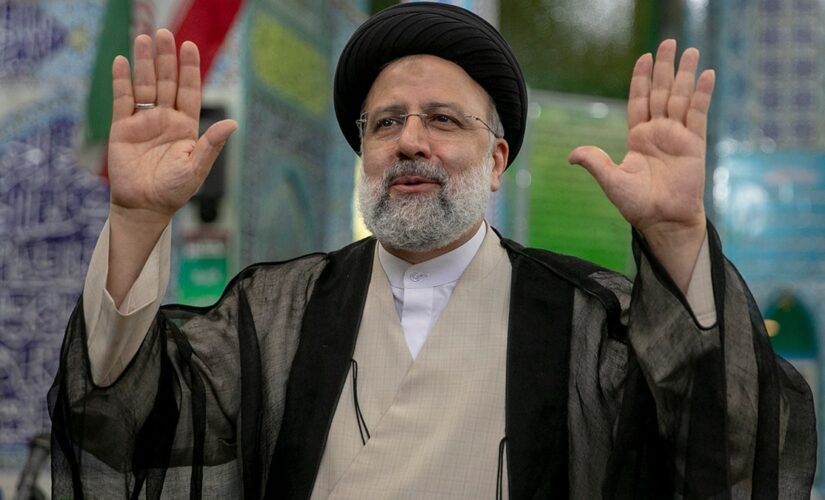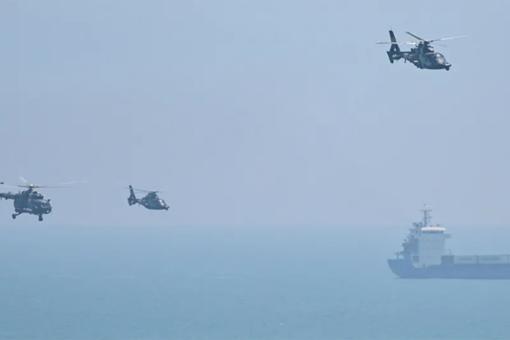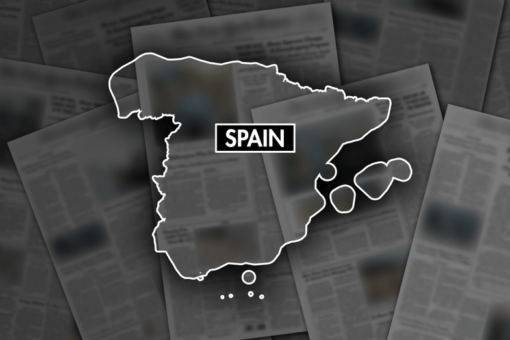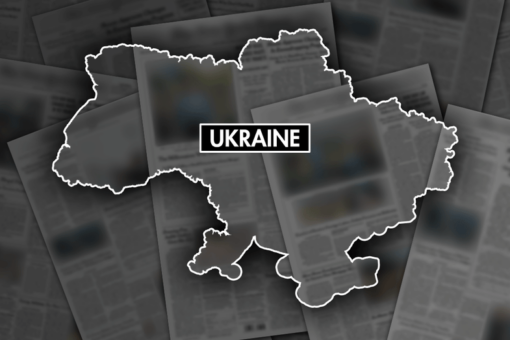NEWYou can now listen to Fox News articles!
Iran has been seeking to increase its influence in South America and undermine American interests and security, drawing little response from the Biden administration as it tries to salvage the Obama-era nuclear agreement with the country.
“The Iranian Revolutionary Guards are much more actively involved in subversive and assassination issues,” James Phillips, the senior research fellow for foreign policy at the Heritage Foundation, told Fox News.
Phillips pointed to a 2011 plot to assassinate the Saudi Ambassador to the U.S. Georgetown neighborhood of Washington, D.C., noting that Iranian agents sought to partner with a Mexican drug cartel to carry out the plot on U.S. soil.
“This was over 10 years ago…. it’s been going on a long time,” Phillips said.
Iranian President Ebrahim Raisi.
(Photo by Majid Saeedi/Getty Images)
Iran’s outreach in Latin America has seemingly begun to pick up again in recent years, most recently with the appearance of a mysterious Venezuelan-flagged plane in Argentina last month. The plane, belonging to a U.S. sanctioned Iranian operator, landed in Ezeiza with a crew of 14 Venezuelans and five Iranians, one of whom was a senior Iranian official.
According to reporting from the Wall Street Journal, the plane has since been seized and an investigation has been launched, but exactly why it was allowed to land in Argentina and what it was doing there remains somewhat a mystery.
Argentinian federal police searched the plane and found material used for military cyber defense operations on board, while it was reported that the captain of the plane was Gholamreza Ghasemi, a board member and manager of Fars Air Qeshm, a U.S. sanctioned Iranian airline.
Argentinian President Alberto Fern?ndez has insisted there was nothing suspicious about the plane, while the country’s security minister claimed the captain only coincidentally shared the same name as Ghasemi, a claim contradicted by Paraguayan intelligence and questioned by Argentinian members of Congress.
BELGIUM PARLIAMENT PASSES IRAN TREATY THAT MAY LEAD TO RELEASE OF CONVICTED TERRORIST
Though Iran has a long history of partnership with Venezuela, a country with a history of seeking to undermine American interests, Iranian cooperation with democratic Argentina would be a more troubling development for the U.S. in the region.
A week before the plane landed in Ezeiza, both Iran and Argentina applied for membership in the BRICS group, a group of five emerging economies that includes Brazil, Russia, India, China and South Africa. The group, which has held an annual summit since 2009, has a significant influence over world affairs, casting itself as an alternative to U.S. dominated Western alliances.
An Iranian Foreign Ministry spokesperson told Reuters that membership in BRICS would result in added values for both sides,” while Russia boasted that the U.S. was failing to cut of its international influence amid its ongoing war in Ukraine.
Iranian influence in South America would be beneficial to Russia, which under President Vladimir Putin’s leadership, has made it a goal to erode U.S. influence in the region.
PUTIN MEETS WITH IRAN, TURKEY IN TEHRAN AMID DEADLY WAR IN UKRAINE
“Moscow has been deepening ties with fellow authoritarian regimes in Cuba, Venezuela, and Nicaragua, as part of a long-term strategy to establish permanent presence in the region,” Rebekah Koffler the president of Doctrine & Strategy Consulting, former DIA intelligence officer, and the author of “Putin’s Playbook: Russia’s Secret Plan to Defeat America, told Fox News.
Supreme Leader Ayatollah Ali Khamenei, center, and Russian President Vladimir Putin, left, greet each other as Iranian President Ebrahim Raisi stands at right, during their meeting in Tehran, Iran.
(Office of the Iranian Supreme Leader via AP)
Koffler said Russia’s aims are not only to gain access to new markets and resources as much of the world attempts to isolate the country, but to demonstrate to the U.S. that it can operate militarily in America’s backyard.
“Ultimately, Russia wants to build a formidable force posture on America’s doorstep, as a deterrent, which Moscow could activate in the event of Washington intervening with Putin’s plans to re-establish control of Russia’s former Soviet states, such as Ukraine,” Koffler said.
The mysterious plane in Argentina is not the only hint Iran is seeking to bolster its influence in Latin America. Earlier this year, Iranian Vice President for Economic Affairs Mohsen Rezaee was an invited guest to the inaugural ceremony of Nicaraguan President Daniel Ortega. Rezaee, a former member of the Iranian Revolutionary Guard, is wanted in Argentina for allegedly masterminding the 1994 bombing of a Jewish center in Buenos Aires.
WHITE HOUSE ACCUSES IRAN OF GIFTING ‘SEVERAL HUNDRED’ DRONES TO RUSSIA
Ortega has long been a controversial leader and has faced accusations of authoritarian policies by international observers. His time in power has seen Nicaragua hit with multiple U.S. sanctions, while the State Department has criticized his support of “radical regimes” in Cuba and Iran as well as repeated attempts to undermine capitalism and U.S. interests.
There is also evidence that Iran has extended its influence as far north as Mexico. Hezbollah, which is designated a terrorist organization by the U.S. and European Union and receives military training, weapons, and financial support from Iran, has been gaining a foothold in Latin America for much of the last decade and has more recently made inroads with drug cartels in Mexico.
The Justice Department announced last month that the U.S. had extradited Adalberto Fructuoso Comparan-Rodriguez, a former mayor of Aguililla, Mexico and alleged leader of the United Cartels in Michoac?n, Mexico, on drug trafficking charges.
According to the allegations, Comparan-Rodriguez met in Cali, Colombia with a drug trafficker believed to be associated with Hezbollah. Comparan-Rodriguez and an associate told the trafficker they could supply hundreds of kilograms of methamphetamine, eventually agreeing to send 500 kilograms of methamphetamine from Mexico into Texas, where they were then transported to Miami.
Law enforcement agencies were able to seize the drugs before they hit the streets after Comparan-Rodriguez was arrested by Guatemalan authorities, but the case demonstrated Hezbollah’s growing influence in Latin America.
Hezbollah has a long documented history of operating in the tri-border area between Argentina, Brazil and Paraguay, while the organization has more recently expanded their reach to Venezuela. In 2019, former Secretary of State Mike Pompeo asserted that the terrorist organization now has “active cells” in Venezuela that pose a security risk to the U.S.
“People don’t recognize that Hezbollah has active cells – the Iranians are impacting the people of Venezuela and throughout South America,” he said at the time. “We have an obligation to take down that risk for America.”
However, the current administration has taken a different approach to the threat of Iran, abandoning the Trump administration’s policy of maximum pressure in favor of trying to rekindle the Obama-era Joint Comprehensive Plan of Action, largely known as the Iran nuclear deal.
Phillips said the new approach has been a mistake, arguing that the Biden administration has become complacent on Iran in an effort to salvage part of former President Obama’s legacy.
President Biden.
(AP Photo/Damian Dovarganes)
“The Biden administration has painted itself into a corner on Iran sanctions,” Phillips said. “It greatly underestimated the leverage it would need to extract another nuclear deal from Iran…it let its foot off the pedal on the maximum pressure sanction strategy that the Trump administration had adopted.”
The smaller amount of leverage has only served to embolden Iran, who in addition to its activities in Latin America has accelerated its efforts to obtain nuclear weapons.
“Iran is on the threshold of acquiring a nuclear weapon,” Phillips said. “They already have enough enriched uranium to build a nuclear bomb within weeks.”
CLICK HERE TO GET THE FOX NEWS APP
Phillips believes that sanctions alone are not the solution, instead arguing that the administration needs to demonstrate a credible threat of military force to deter Iran’s growing ambitions.
“Sanctions alone aren’t going to stop Iran’s nuclear program any more than they stopped North Korea’s,” he said. “What would deter Iran is a credible threat of the effective use of force.”




